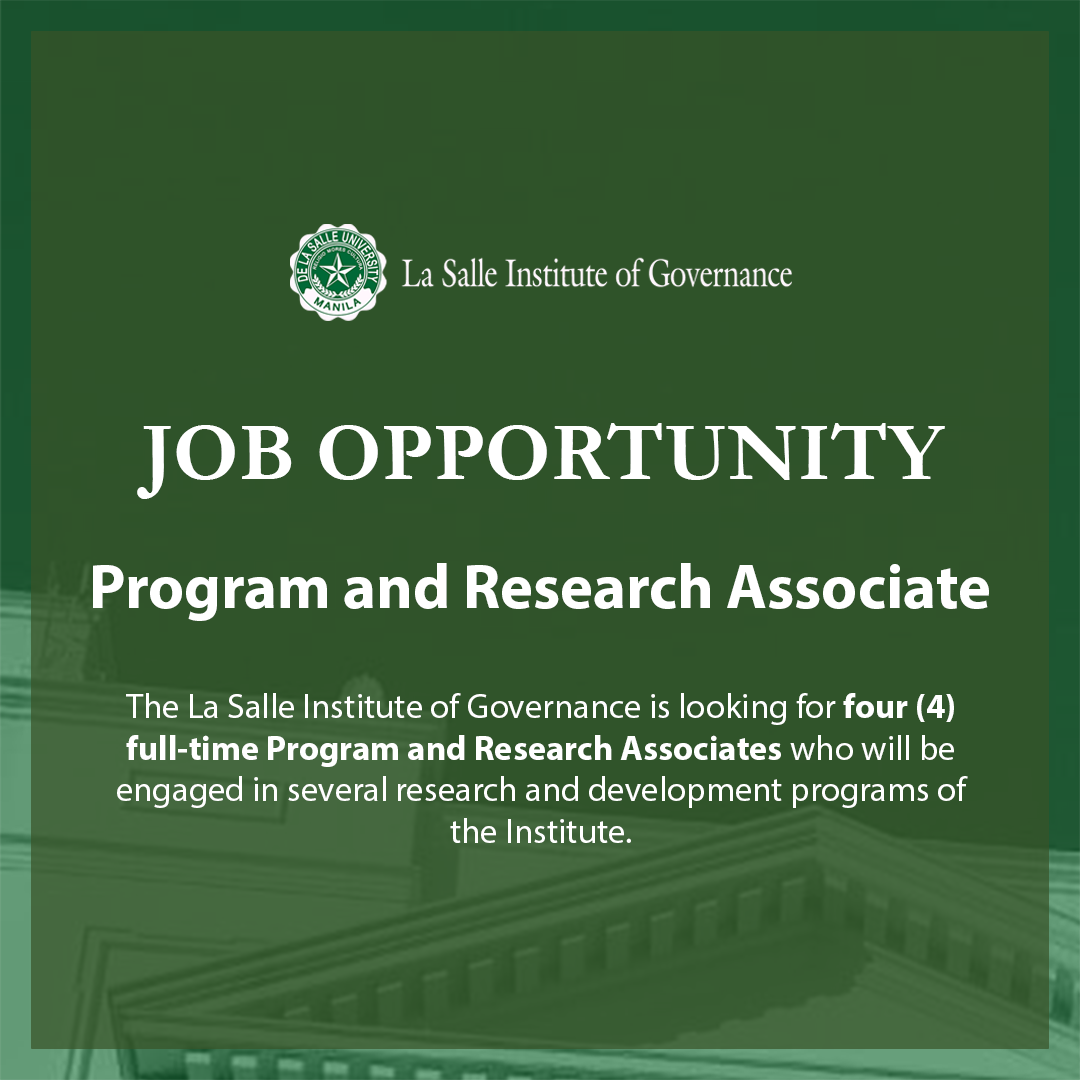Manila, Philippines -- Various government agencies and civil society groups see effective advocacy communication as a step towards increasing participation in political reforms and strengthening democracy.
Held on March 25–26, 2023, at the Hotel Benilde Maison De La Salle, Malate, Manila, Making Your Messages Matter: Training on Effective Advocacy Communication in the New Media Landscape aimed to amplify the advocacy communication skills of the 25 participants.
Organized by the La Salle Institute of Governance (LSIG) in partnership with PARTICIPATE, the event featured prominent speakers who shared their expertise and insights on various topics.
Developing Advocacy Messages and Good Visual Storytelling
DLSU Communication Lecturer Carlo Figueroa gave a talk on media advocacy and truth-telling. He emphasized that the media helps organizations create a reliable and consistent stream of publicity for their issues and other activities, which can lead to more responsive public policies.
"You’re writing as the voice of the organization," he added, highlighting the importance of writing as the voice of the organization.
Figueroa also stressed the importance of having good writing skills to effectively convey advocacy messages to the media and journalists.
"Think like a journalist, including the traditional 5 Ws and 1 H. Practice, and follow the acceptable style and standard that professional news outlets do," he said.
ABS-CBN News Chief Reporter Jeff Canoy shared tips and reminders on developing effective advocacy messages from a journalist's perspective. He highlighted a good visual story, timeliness, visuals, providing opportunities, scheduling, and accessibility as key elements to incorporate in writing advocacy messages.
Canoy also pointed out the value of putting context when writing a good story. "The difference is we put context on everything because things don’t happen just because they happen. There’s always a reason behind it, and it’s for the journalist to figure out what that reason is."
In developing compelling visual storytelling, Canoy emphasized the show, don’t tell rule. "It’s more effective if you put images side-by-side rather than just me telling you in one paragraph or one text. The composition is always important; essentially it’s like a song…you don't think about those (technical) things."
Jimmy Domingo, Chairperson of the Photojournalists Center of the Philippines, also talked about applying visual communication to shaping advocacy messages from a photojournalist’s perspective.
"Framing, composition, design, and perspective. Visuals are constructs... It implies that a picture shows a thousand words. With the aid of captions, the message of the photo can be explained easily." He added, mentioning the visual composition and caption as vital elements in photography.
Maximizing Social Media for Advocacy and Fact-Checking
In the discussion about the disinformation landscape and the basics of fact-checking, DLSU Communication lecturer Jake Soriano pointed out the proliferation of information disorder in social media.
"Social media is a big part of our lives. And with that, is a problem of mis and disinformation because social media sort of amplifies these problems."
He also explained the consequences of online disinformation. " They harm our health, they shape our politics, and they have impacts on democracy in the Philippines."
Figueroa also added during the discussion the need to look at the platform’s accountability with online disinformation.
"We should not depend fully on fact-checking. So, we should look at platform accountability as well. Everything is hyper-advertising, and they’re not very forthright in how they tell us, in how they bump algorithms, and in how they use platform accountability," he said.
On maximizing social media platforms for communicating advocacy, Multimedia production start-up Lyf Solutions President Voltaire Tupaz stressed the need to utilize the presence of the latest technologies to share advocacies.
Tupaz mentioned the changes in the framework of advocacy campaigns and the roles of advocates with the rise of social media. "Advocates today are becoming storytellers and digital citizens. You have to adjust your content plan depending on people’s internet use, " he said.
In terms of strengthening the NGO’s social media presence, he emphasized the importance of social media auditing. "Through it (auditing), we can measure the effectivity (of the campaign), we can also monitor the social media insights and engagement, and new opportunities to grow and engage your audience."
In the end, Tupaz encouraged the participants to share and discuss their opinions and find like-minded communities and reminded them to think as content creators in leveraging their advocacies.
Participants gained valuable insights and skills to help them communicate their advocacy messages more effectively in the new media landscape.





















